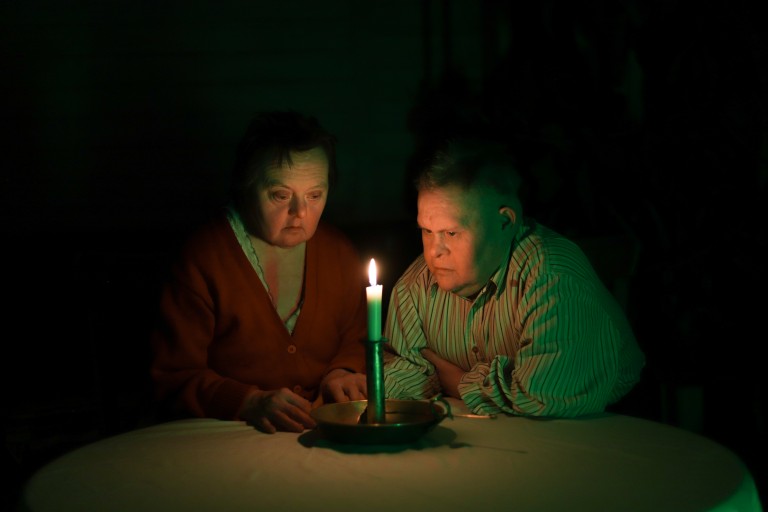Location: Sotterraneo del Baluardo San Colombano, Corso Garibaldi 35
Opening times: Monday – Thursday 3pm – 7:30pm / Friday – Sunday 10am – 7: 30pm
ROMANO CAGNONI AWARD 2022 – NICOLÒ FILIPPO ROSSO: EXODUS
curated by Benedetta Donato
in cooperation with Fondazione Romano Cagnoni
Nicolò Filippo Rosso with EXODUS is the winner of the second edition of the Romano Cagnoni Award.
The journey begun by the author four years ago continues today, following the routes of migratory flows from Venezuela to Colombia, from Central America to Mexico and the United States. Stories of loss and separation, of conflicts, persecutions and impunity that cause situations of mass migration throughout Latin America.
The international photojournalism award, promoted by Fondazione Romano Cagnoni, in collaboration with Photolux Festival, was born in 2019, in memory of the great photojournalist Romano Cagnoni (1935-2018), with the aim of supporting photographers from all over the world, who investigate with depth and participation, issues related to the human condition, social and environmental change , humanitarian crises and the violation of human rights around the world.
For this edition, the authors have been asked to present projects on the theme of Freedom.
Photojournalism is above all a manifestation of freedom of expression and movement.
Through photographic narration, freedom becomes an area to be investigated further in order to document its presence, its absence and the path to search for it, as a condition that should concern every living being.
The motivation accompanying the choice of the winning project tells:
“EXODUS by Nicolò Filippo Rosso was considered unanimously as a long-term project, which was able to best interpret the proposed theme in all its facets. A testimony that, for four years, has been documenting a true and dynamic story, able to report conditions of social inequality, lack of access to primary rights and extreme difficulty in acquiring fundamental freedoms, which characterize the phenomenon of migration in Latin America .
A complex topic, which the author manages to represent, offering an important and continuous information signal, revealing a strong capacity for in-depth photojournalism and remarkable sensibility, instinct and human involvement “.
The over 100 candidate projects were pre-selected by a committee made up partly of members of the Romano Cagnoni Foundation and partly of the Photolux Festival.
The selected works have been viewed by the international jury of experts, composed of: Martina Bacigalupo – 6MOIS, Elena Boille – Internazionale, Daria Bonera – DB Agency/CESURA, Patricia Franceschetti Cagnoni – Fondazione Romano Cagnoni, Jim Casper – LensCulture, Manuel Rivera-Ortiz – The Manuel Rivera-Ortiz Foundation, Moshe Rosenzveig – Head On Photo Festival.
Nicolò Filippo Rosso | Exodus
In Latin America, the lack of job opportunities, limited access to education and political corruption have persisted for generations, fueling cycles of violence and displacement that are both symptoms and causes of broken societies. I have documented this phenomenon for the past four years, traveling along the migration routes from Venezuela to Colombia and from Central America to Mexico and the United States. For so long following migrants from different countries, I have seen countless stories of loss and separation through the eyes of the most vulnerable: those who are born, grow up and die on the go. In documenting the travels of migrants, I have kept in mind the diversity of reasons that push each population to emigrate. Yet, I also understood how political persecution, impunity, and the problem of access to primary rights such as food and health care largely affect Latin American societies, causing mass migrations across the continent. Decades of civil war, endemic poverty or violence make it difficult for migrants to find better conditions than they are fleeing from. Crossing borderlands controlled by gangs and rebel groups, people are exposed to trafficking and recruitment. There, becoming adult is difficult. In a state of constant alert, adolescents often tend to duplicate patterns of violence in order to survive in the only environment they have known. For thousands of children born during migration, the obstacles of statelessness will prevent them from acquiring fundamental freedoms, which could expose them to exclusion and discrimination. Some people never reach their destination.






